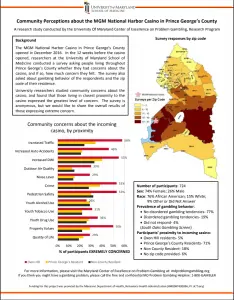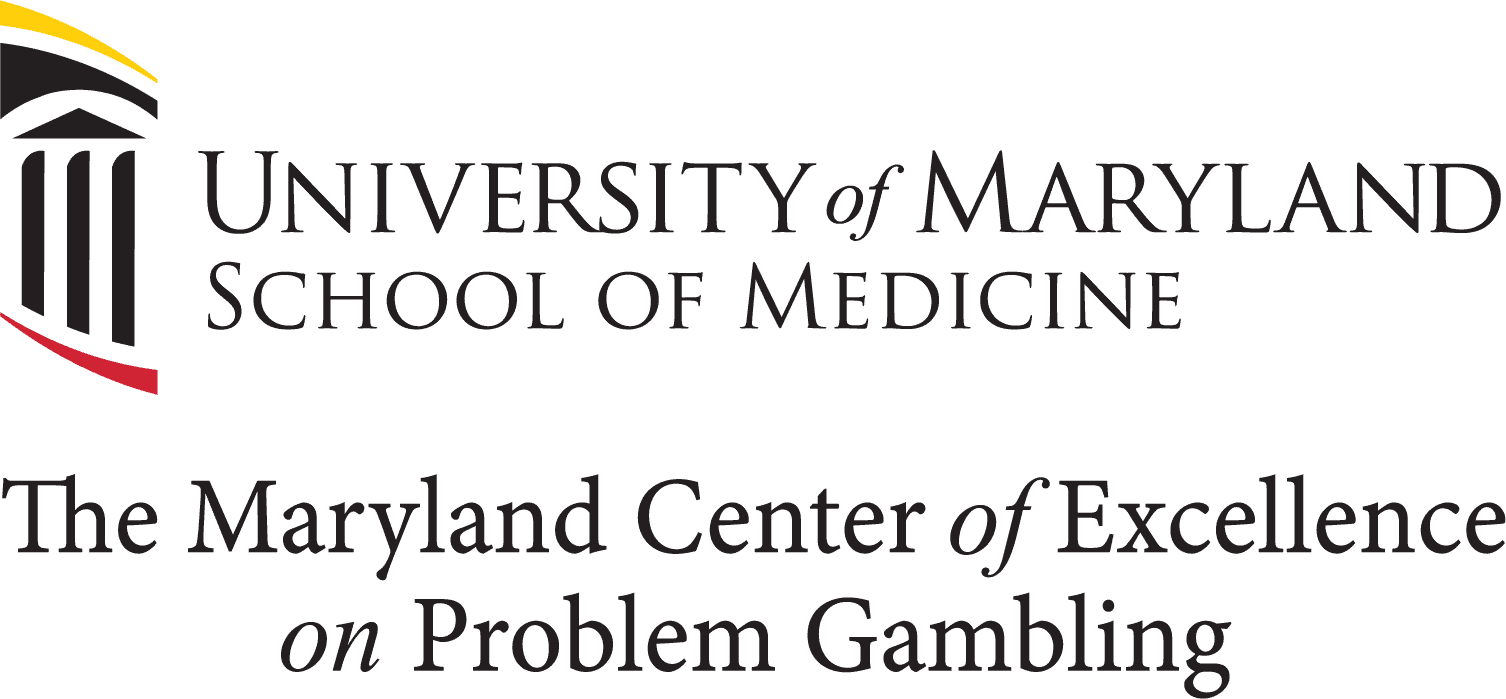Select any of the tabs listed below to read more about the projects.
The PEGASUS study is a prospective cohort study designed to examine the full range of gambling behaviors in the population. The broad purpose of the PEGASUS study is to identify factors associated with gambling behavior and to:
- Identify risk factors for problem gambling
- Identify factors that protect against developing problem gambling behaviors
- Evaluate biological correlates of gambling behavior, including brain activation, cognitive correlates and genetic correlates
Identification of correlates (risk and protective) will form the scientific basis for developing evidence-based approaches to mitigating problem gambling behaviors. This study recruited 1,346 participants between September 2015 and September 2017. Participants will be followed over time for a period of consecutive years. Although the study is not currently recruiting participants, we are actively following-up with enrolled participants for year three and year four. Follow-up for year five will begin in April 2020.
Example Results from PEGASUS
Barriers to treatment: Data from the PEGASUS research study has been used to assess utilization of gambling related treatment. Results indicate that the majority of the participants who exhibit problem gambling behavior do not seek treatment. Reasons for not engaging in gambling treatment could be categorize into four broad domains: treatment cost, fear/shame, negative beliefs about the effectiveness of treatment, and logistical challenges.
Although adults in Maryland are eligible for no-cost treatment regardless of financial or health insurance status, a substantial proportion of participants reported not receiving treatment due to financial reasons. Financial reasons included being worried about the cost of treatment and the thought that health insurance would not cover the cost.
For a brief summary of results on barriers to care, please click here.
The Horseshoe Casino Catchment Area Community Assessment was a community-based survey designed to assess the prevalence of gambling behavior in the communities surrounding the Horseshoe Baltimore Casino and to evaluate attitudes of community residents about the casino prior to its opening on August 26, 2014. Survey data were collected from 1,136 respondents in the casino catchment area. A one-year follow up study was conducted in summer 2015.
For a brief summary of results from the baseline assessment, please click here.
In order to assess changes in attitudes and gambling behavior following the opening of the Horseshoe Baltimore Casino, a one-year follow up survey was conducted in the summer of 2015. Follow up survey data were collected from 893 respondents in the casino catchment area. As was the case with the baseline Horseshoe Community Survey, top community concerns centered on issues of public safety and property values. No significant differences in concerns were noted between the baseline and follow-up surveys.
The Free State Data Warehouse is a curated warehouse of data implemented to support assessment of the public health impact of gambling in the State of Maryland. The following data sources are currently available through the data warehouse:
| Source | Dataset |
|---|---|
| Maryland Lottery and Gaming Control Agency | Lottery revenue, Gaming revenue, Instant bingo bells |
| Maryland Office of the Comptroller | State budget |
| Maryland State Statistics | Vehicular collisions, Population size |
| Beta Baltimore | Crime, Arrest, Crime camera locations |
| Baltimore Neighborhood Indicators Alliance | Vital signs, Community naps |
| Baltimore City Department of Finance | Simulated slot machines |
| Gambling Impact and Behavior Study | Adult survey, Youth survey, Community database |
| National Epidemiologic Survey on Alcohol and related Conditions | Wave 1 data Wave 2 data |
| US Census | Block/Tract maps |
| Crash Outcomes Data Evaluation System (CODES) | MVA Licensing & Registration Motorcycle Safety Training Driver Citations Police Crash Reports Ambulance & EMS logs Emergency Department Data Hospital Records Statewide Trauma Registry Toxicology Autopsy Records Vital Statistics |
| Maryland Statewide Gambling Prevalence | Raw data from 2010 survey |
Several projects have utilized the Data Warehouse to assess the public health impact of gambling. These are summarized below:
- Assessment of Motor Vehicle Crashes Following Casino Opening
The objective of this project, utilizing CODES data from the Data Warehouse, was to evaluate traffic crashes before and after the opening of the Maryland Live! Casino in Anne Arundel County. The specific aims of the project were to determine whether the frequency of certain types of crashes increased; to determine driver characteristics related to any observed increases in crashes; and to determine if alcohol-related crashes have increased more than other types of crashes. Results: Crashes occurring within one 1 mile of the casino increased by 34.2% while crashes occurring within a 5 mile radius increased by 7%. For the area representing the 1-mile radius of the casino, weekend motor vehicle crashes increased by approximately 77%, crashes occurring between 9pm and 5am increased by nearly 87%, and crashes in which one of the drivers involved was impaired at the time of the crash increased by approximately 58%, especially when drivers were impaired by alcohol. The greatest increases in motor vehicle crashes were among individuals that lived near the casino. Notably, the greatest percentage increase in motor vehicle crashes occurred among drivers from Virginia, a state that does not currently offer legalized gambling. No significant increases were noted within a 5-mile radius of the casino. - The Effect of Change in Alcohol Policy on Motor Vehicle Crashes and Alcohol-Associated Motor Vehicle Crashes Proximal to Maryland Casinos
Original legislation authorizing expansion of legal gambling in Maryland required these venues to refrain from selling alcohol to patrons between the hours of 2a.m. and 6a.m. In 2012, the law was revised to allow casinos in the state to serve alcohol 24 hours a day. As part of monitoring how policy changes affect public health outcomes, the Research Program on Gambling initiated a project to evaluate the effect of this change in policy. This project monitored motor vehicle crashes and alcohol-related traffic incidents in jurisdictions proximal to casinos that were operational before the change in alcohol policy occurred. - Availability and Distribution of Simulated Slot Machines in Baltimore
This study examined trends related to the availability of electronic gaming machines, such as modern day slot machines and video poker terminals, in Baltimore City. Results indicated that the number of machines has declined with the expansion of other forms of gambling, machines tend to be located in low-income, predominantly white neighborhoods, and the density of machines is positively associated with property crime rates. Study results were published in the November 2015 issue of the Journal of Gambling Issues.
If you are interested in collaborating on research utilizing the Data Warehouse, please contact Bailey Evenson, Clinical Research Specialist, at bevenson@som.umaryland.edu.
Statewide Prevalence Study 2011
Maryland law requires the Department of Health and Mental Hygiene (DHMH) to assess the problem gambling prevalence in the state at regular intervals. The initial assessment was conducted in September 2010. DHMH’s report, Gambling Prevalence in Maryland: A Baseline Analysis, was submitted to the legislature in June 2011. For a copy of the referenced DHMH report, please click here.
Statewide Prevalence Study 2017
With the formation of the Maryland Center of Excellence on Problem Gambling and integration of the Research Program on Gambling into the Center, the responsibility for conduct of the statewide prevalence of gambling study now rests with the Research Program on Gambling. The statewide follow-up prevalence study took place in 2017 after all approved casinos have opened in order to fully assess impact of expanded casino gambling on problem gambling prevalence in Maryland. Data analysis and a final report were completed in December of 2018 and is available for review here.
Statewide Prevalence Study 2020
This survey was conducted from June to August 2020 to provide updated data on the patterns of gambling behavior and the risk factors for problem gambling in Maryland. With this new data, stakeholders in Maryland can gain insights into the evolution of gambling behavior, attitudes, and addiction over time, as well as awareness of prevention and treatment options in the state. The 2020 Statewide Prevalence Study is available for review here.
In 2014, the Research Program established a seed grant program to stimulate scientific research focused on gambling in the state of Maryland.
The program has two goals:
- To generate preliminary data that will lead to a major grant application to federal or commercial agencies
- To promote scientific excellence in the domain of gaming research
Two studies have received funding to date:
- Sex-dependent Modulation of Decision-making in Gambling Tasks
We know from basic human epidemiologic studies of gambling prevalence that problem and pathological gambling are more common among men than women. However, the biological mechanisms of these sex differences are not well understood. Studies of the biological origins of gambling behavior in general and sex differences specifically have the potential to advance our understanding of gambling disorder and inform development and evaluation of pharmaceutical treatments for gambling addiction. The purpose of this seed grant project is to characterize sex differences in risk-taking behavior with an animal model and to identify the role that sex hormones such as testosterone and estrogen play in risk-taking behavior.
Preliminary results of this study where presented at the National Center for Responsible Gaming annual conference in 2015. Results indicate that females show better decision-making initially, but males show progressive improvement on the gambling task indicating different mechanisms underlying the short and long-term decision-making involved in gambling. The data also suggests that hormonal changes of estrous do not affect impulsivity or decision-making in female rats.
To view the preliminary results, please click here. - Gambling Behavior in Veterans: A Pilot Study
This study screens veterans utilizing services through the Maryland VA Health Care system as well as veterans in the community in order to determine prevalence of problem and disordered gambling as well as identify risk factors for gambling disorder that are unique to the veteran population.
Information on health history, combat experience and gambling exposure while deployed was collected and analyzed. The project is also collecting biological samples (saliva) that will allow for analysis of genetic correlates of gambling behavior. Preliminary data were presented at the 2016 National Conference on Problem Gambling and a manuscript is in progress.
To view the preliminary results, please click here.
Child maltreatment is associated with physical and mental health problems in adulthood and problem gambling is associated with negative consequences for children. This study reviewed research on child maltreatment and risk of gambling problems in adulthood and adult problem gamblers’ risk of abusing or neglecting their own children.
Multiple database searches were conducted using pre-defined search terms related to gambling and child abuse and neglect. We identified 601 unique references and excluded studies if they did not report original research, did not specifically measure child maltreatment or gambling, or include a control/comparison group. Our search yielded twelve studies that included multivariable analysis of childhood maltreatment on later gambling; two studies assessed the risk of problem gamblers maltreatment of their own children; and a single study explored both of these questions. Six of seven studies examining childhood sexual abuse and four of five studies examining physical abuse showed a significant positive association between abuse and later gambling problems.
Two studies examining psychological maltreatment and two of three examining neglect identified positive associations with problem gambling. Among three studies measuring risk of child abuse and neglect among current problem gamblers, studies suggested an increased risk for child physical abuse and medical conditions indicative of neglect although there is a considerable amount of variation among studies. Child abuse is associated with increased risk of gambling problems as an adult. Problem gamblers may be more likely to physically abuse or neglect their children, but data here are limited.
Contact the Research Department
Research Program on Gambling
University of Maryland School of Medicine
660 W. Redwood St.
HH124
Baltimore, MD 21201
667-214-2120
info@mdproblemgambling.com





